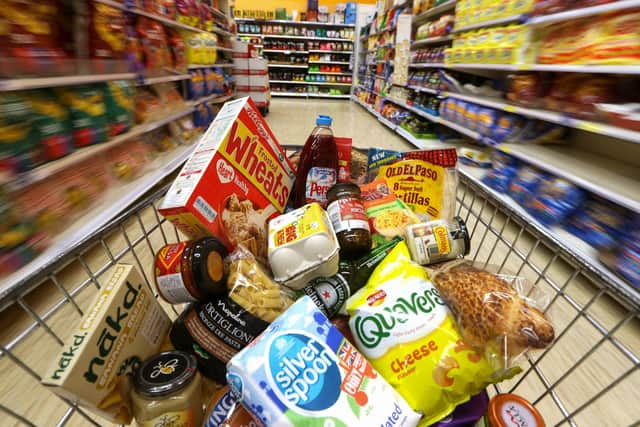Rising food prices to overtake cost of energy during summer months says top thinktank
and live on Freeview channel 276
The Resolution Foundation has predicted that the rising cost of food will overtake the price of energy as the driving force behind inflation over the summer, hitting poorer households the hardest.
The leading thinktank has forecast that grocery bills that had rocketed by almost 20% during the past year would continue to increase, replacing energy prices that were expected to begin falling over the next few months.
Advertisement
Hide AdAdvertisement
Hide AdThe foundation said it was not clear that politicians were prepared for another year of food price rises or that “policy debates have caught up with the scale of what is going on”.
Official figures released next Wednesday (May 24) are predicted to show that the annual rate of inflation fell in April by about two percentage points from the 10.1% figure for March.
Food prices usually fall in the summer as UK crops replace more expensive imports.
But factory gate prices for milk, meat and other foods has accelerated, in some cases by more than 50% year on year.
The Resolution Foundation’s report, Food for Thought, says food prices are expected to contribute “more to overall inflation than energy” in the months ahead.


Advertisement
Hide AdAdvertisement
Hide Ad“Between March and September 2023, food prices are expected to contribute around 2 percentage points to inflation each month, while the contribution of energy prices is set to fall from 3 percentage points to less than 1,” the report estimated.
The cost to the nation from higher food prices since the 2019-20 financial year would be £28bn by the end of the summer, compared with an extra £25bn cost from higher energy prices, it further revealed.
Lalitha Try, one of the authors of the report, said: “Everyone realises food prices are rising but it’s less clear that the scale of the increases has been understood in Westminster.
“What rising food prices have in common with surging energy bills is that they pose a greater challenge to lower-income households, who spend a higher proportion of their income on food – 15%, compared with 10% for the highest-income households in 2019-20.
“As a result, the effective inflation rate for the poorest 10th of households was almost 50% higher compared with the richest 10th of households in March.”